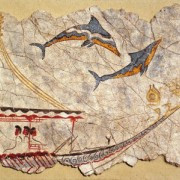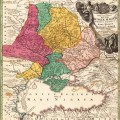Black Sea Networks

The Black Sea has linked the cultures and economies of Europe, Central Asia, and the Middle East for millennia. Today, the Black Sea region is the site of political and ecologic crises with global repercussions. But the region’s countries, with their diverse languages, religions, cultures, and political systems, are too often viewed in isolation, without a clear understanding of their profound interconnections. To successfully meet global challenges, we must learn to work with religious, cultural, and linguistic diversity, and understand the complex local contexts in which ordinary people lead their lives.
Black Sea Networks is an international teaching and learning initiative at Columbia University that connects regions, disciplines, and institutions, creating educational and research programs that target the diversity of cultural practices in a highly strategic zone. Building upon existing initiatives, including the Columbia-Boğaziçi Summer Program in Balkan Transcultural Studies, Black Sea Networks re-conceptualizes existing programs within a larger Black Sea framework. It further fosters new bonds among Slavic Studies, Hellenic Studies, Middle Eastern Studies, and East Asian Studies, aiming to establish innovative interdisciplinary programs of study.

Based in Columbia’s Slavic Department and led by Professor Valentina Izmirlieva, the project is a recipient of Columbia’s Presidential Global Innovation Fund for 2016–2018. It is developed by an international team of scholars in partnership with Yale University, NYU, Cambridge University, and Columbia Global Centers in Istanbul and Paris, and boasts the support of the Harriman Institute, the Graduate School of Arts and Sciences, American Councils for International Education (Washington D.C.), the Orthodox Christian Studies Center at Fordham University, and a vast network of institutions across the Black Sea region.
To learn more about this initiative, please visit the Black Sea Networks website, http://blackseanetworks.org/
